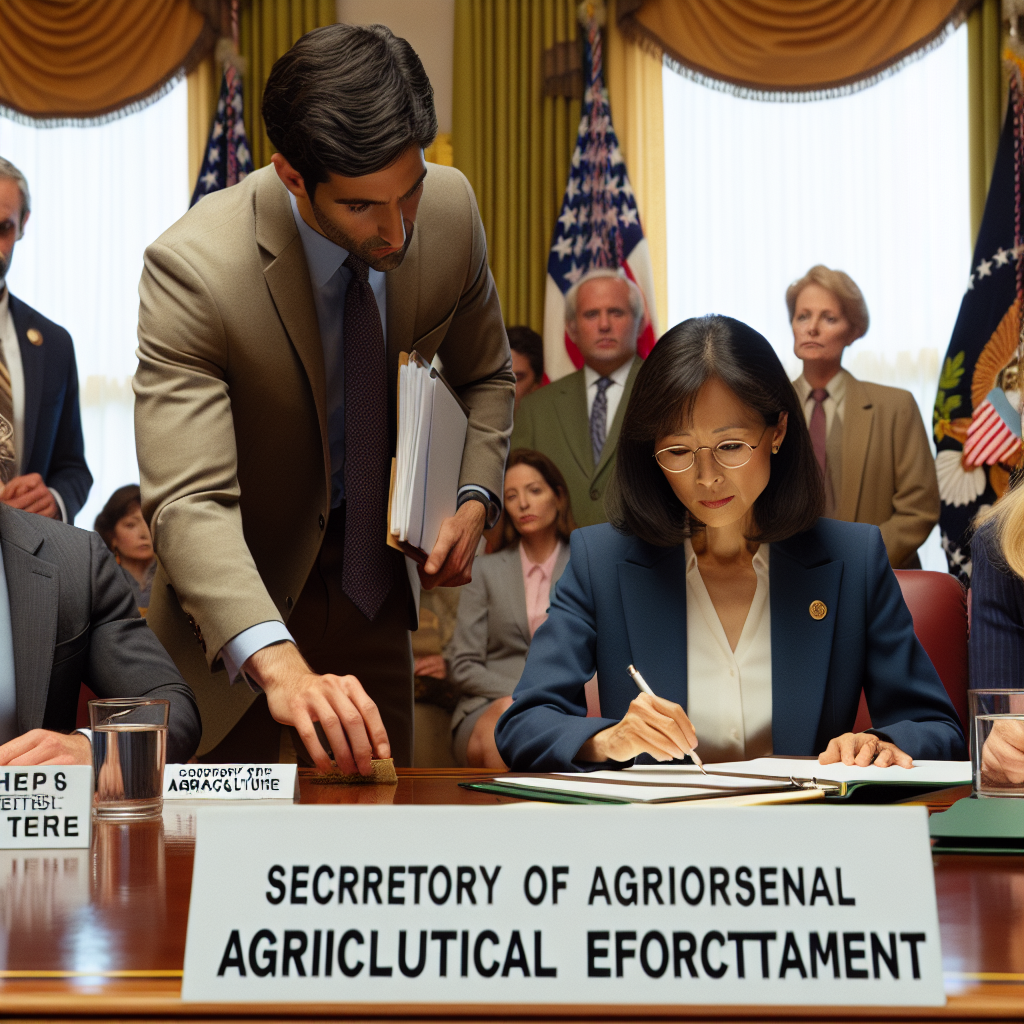On November 1, 2025, as the Trump administration prioritizes immigration enforcement, officials from the U.S. Department of Agriculture and agricultural district lawmakers are seeking new solutions to address the pressing issue of agricultural labor shortages.
Secretary of Agriculture Brooke Rollins proposed a straightforward solution: tapping into the workforce of some of the 34 million “healthy adults receiving Medicaid in rural agricultural areas.”
During a press conference at the USDA headquarters on July 8, Rollins stated, “With 34 million able-bodied adults on Medicaid, we should be able to quickly achieve this goal.”
She emphasized Trump’s commitment to not granting amnesty to any undocumented farmworkers, stating that his “commitment to America” lies in having a “100% American workforce” nationwide.
She warned that strategic deportation measures must be taken to avoid jeopardizing the U.S. food supply chain.
Rollins also stressed that the ultimate solution lies in automation, alongside the need for reforming the current governance framework.
She further pointed out that the U.S. has an “ample workforce” with currently “34 million physically fit adults” enrolled in the Medicaid program.
Previously, on July 4, President Trump signed the “One Big Beautiful Bill,” officially enacting it. The bill includes a provision expanding work requirements for Medicaid recipients.
Congressman Derrick Van Orden, a Republican from Wisconsin, expressed skepticism towards Rollins’ plan. He stated during the World Dairy Expo in Madison in early October that large-scale deportations of undocumented immigrants have severely impacted the immigrant workforce, making it unrealistic to rely on domestic workers to fill the gap.
He asserted that failing to retain the existing agricultural workforce would lead to farm closures, resulting in increased costs for supermarket food packaging and exports.
He proposed a bill that allowed for the deportation of undocumented immigrants, followed by their return to the U.S. under a vaguely defined “legal protected status,” providing them with a stable immigration status.
The bill has not yet reached the committee review stage in the House of Representatives. If ultimately passed, eligible workers would have one year to leave the U.S., pay a fine, and return to work in the U.S. within 30 days of departure under a three-year renewable status, replacing the current H-2A visa system – the U.S.’s current guest worker program.
Similar to this proposal is the bipartisan “Farm Workforce Modernization Act.” The bill was submitted for House consideration in May, aiming to create a new legal category for “certified agricultural worker status,” allowing qualified but undocumented workers to return to the U.S. and providing a path to citizenship for them.
Representative Monica De La Cruz, a Republican from Texas, proposed a different approach: simplifying H-2A visa documentation processes, standardizing wage standards, and requiring Congress to reassess whether U.S. farmers must provide free housing for temporary workers.
H-2A visas are non-immigrant visas designed for temporary or seasonal agricultural work, typically lasting up to one year and extendable to a maximum of three years, requiring workers to return to their home countries after their employment ends.
She stated, “I believe streamlining processes can protect migrants who are eager to work legally in the U.S.,” providing them with a safe entry pathway to avoid falling victim to human trafficking networks.
The proposal has not yet been discussed in the House committee.
Supporters of the proposal argue that eliminating the costly and cumbersome procedures of H-2A visas can prevent farmers from informally hiring labor, thus preventing human trafficking and exploitation, allowing workers to avoid paying intermediary fees, visa application fees, and travel expenses, preventing them from being in debt before arriving at their work locations, completely at the mercy of unscrupulous farmers and intermediaries.
Carmen Martinez, Policy Director at the Centro por los Derechos del Migrante, an immigrant rights organization, pointed out that, “We know that when international recruitment of laborers is forced to pay high fees, many individuals will incur debt,” making them more vulnerable to exploitation and human trafficking.
(This article referenced reporting from Bloomberg).

